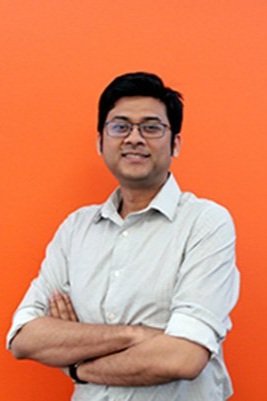Assistant Professor Ishtiaque Ahmed is a recipient of a 2024 Microsoft Research AI & Society fellowship.
Ishtiaque Ahmed wants to help art and design practitioners in the Global South get the most out of generative AI by narrowing existing gaps that make it challenging to produce content reflective of the places it is used, not just the places it was developed.
As a recipient of a 2024 Microsoft Research AI & Society fellowship, the assistant professor in the Department of Computer Science will research “Reducing the Digital Divide of Generative AI in the Global South.”
While Generative AI models such as ChatGPT and DALL-E hold “enormous potential for transforming the way we interact with technology and access information,” Microsoft notes there is also a contextual gap of understanding how current models will perform in the Global South since they are deeply rooted in the Global North — “from the companies that develop them, to the data that is used to train them, to the metrics we use to evaluate them.”
The research challenge Ahmed will be tackling during the one-year fellowship with Microsoft “aims to move toward more geographically equitable Generative AI models and applications,” reads the program’s website.
“I’m excited because this project will help me to bring the benefits of artificial intelligence to my own people back in Bangladesh, some of the communities who have been historically marginalized,” says Ahmed in a video shared by Microsoft Research.
Ahmed will analyze the challenges Bangladeshi art and design practitioners are facing while using generative text to image models and co-design computational tools and datasets to address these challenges.
“The modern text-to-image tools like DALL-E or Midjourney, they work on a huge database of images which are mostly sourced from the Western world, so the output image looks like a Western image,” explains Ahmed in a video shared by Microsoft Research.
“So, when a person from the Global South tries to use these models for producing an image in their context, these models do not actually produce good results. The objective of this project is to find out where exactly the system is broken and how we can come up with a better technology with the local people to fix the system so that these people can get the benefits of this artificial intelligence.”
Learn more about the project in the video below:


